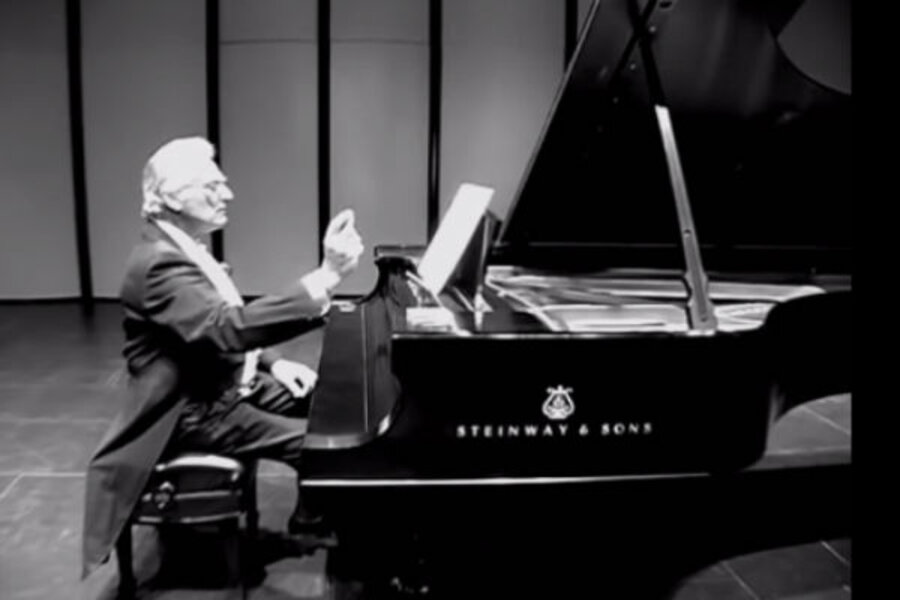For this father, silence can be golden, and nerve-wracking
Loading...
As the final musician at a concert concluding his recent summer camp, my 13-year-old son Will offered a selection that seemed like both the easiest and hardest piece to perform – and also the most surprising.
If you seem confused at this point, imagine my own befuddlement when Will strolled across the stage without his cello, the only instrument he really knows how to play. My bewilderment grew even deeper as Will stood at a podium, smiling and silent, as the minutes ticked away for what seemed like an eternity.
All perfectly normal, or so I learned, when anyone brings John Cage’s piece titled "4'33” " before an audience. Cage, an experimental composer, named his piece “4'33” " because it includes four minutes and 33 seconds of silence. On a whim, Will volunteered to include it in his concert repertoire, and it taught him – and his parents – a lot about both the promise and peril of quiet in our family’s life.
Watching Will standing cheerfully on stage with his mouth closed, I couldn’t help thinking that this looked like the paradise I’d hoped for as a younger father. After all, what harried parent, stressed by the chatter and clatter of an energetic tyke, hasn’t sometimes hoped for the gift of silence from a child?
Watching Will on stage as he stood shrouded in an almost monastic absence of sound, I felt free to focus on the simple fact of his presence – a handsome young man, my son, doing something daring before an expectant audience. Silence, a natural habitat for the kind of reflection that brings gratitude, is a scarce commodity for parents, of course. Seeing Will perform the piece reminded me how much we mothers and fathers need stretches of quiet, even for a few moments, to see our place in the world, and the place of our kids in the larger scheme of things.
The quiet of the concert hall that afternoon built expectation, too. The interlude underscored for me how much parents and children require quiet to see the world ahead, and look forward to it.
But as the performance proceeded, I grew restless watching Will alone at the front of the hall. He got itchy, too, eventually smiling, wrapping up Cage’s “composition” at the three-minute mark. “That’s it,” he told spectators, giggling. “I can’t do anymore.”
What Cage meant to prove, apparently, is that we’re simply not conditioned to handle that much quiet; invariably, we reflexively seek to fill it with something else.
The ideal of occasional silence seems more challenging than ever in our family, as Will plays his video games, and my wife chats on the phone, and I watch the news, and our terrier barks at nothing in particular.
But leaving the concert hall that day, I resolved to create more quiet in the coming school year for myself, my wife, for Will – if not four minutes and 33 seconds consecutively, then at least a minute, or maybe two, between now and next spring






